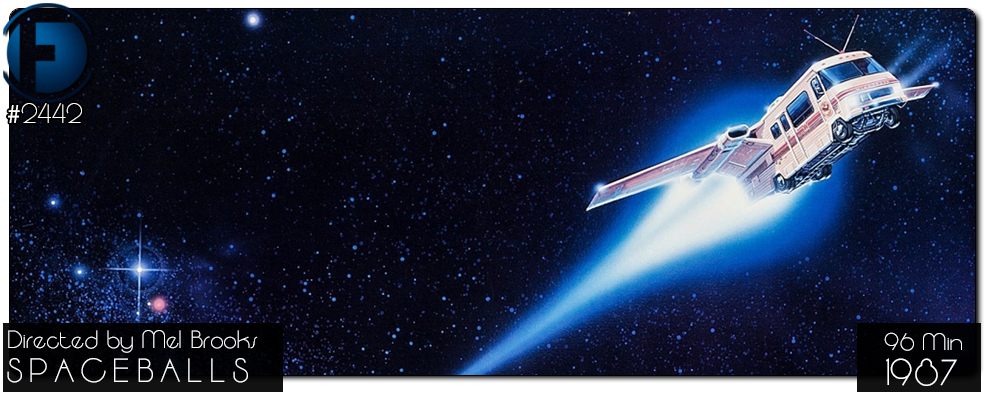Movie Review – Spaceballs
Principal Cast : Bill Pullman, John Candy, Daphne Zuniga, Joan Rivers, Rick Moranis, Mel Brooks, George Wyner, Dick Van Patten, Michael Winslow, Ronny Graham, Jim J Bullock, Leslie Bevis, Sandy Helberg, Dom DeLuise, Rudy De Luca.
Synopsis: A star-pilot for hire and his trusty sidekick must come to the rescue of a princess and save Planet Druidia from the clutches of the evil Spaceballs.
********
For a good long stretch throughout the 1970s and into the 1980s, New York-born director Mel Brooks carved out an unassailable position as the king of the parody film. A director whose brand of humour rode the bleeding edge of political incorrectness and unfiltered absurdity, Brooks hit the cultural zeitgeist square on the noggin time and again with films such as Blazing Saddles – a film I strongly suspect could never be made today – as well as the Robin Hood-flavoured Men In Tights, and, of course, his Star Wars riff, Spaceballs. Largely considered one of his most accessible, family-friendly films (despite the odd adult joke snuck past censors), Spaceballs represents Brooks at his most commercially savvy: a broad, endlessly quotable, gag-a-minute adventure through the galaxy, leaning heavily on George Lucas’ monumental space opera and the wider tropes of science fiction to deliver an ironic, affectionate lampooning of pop culture at its nerdiest.
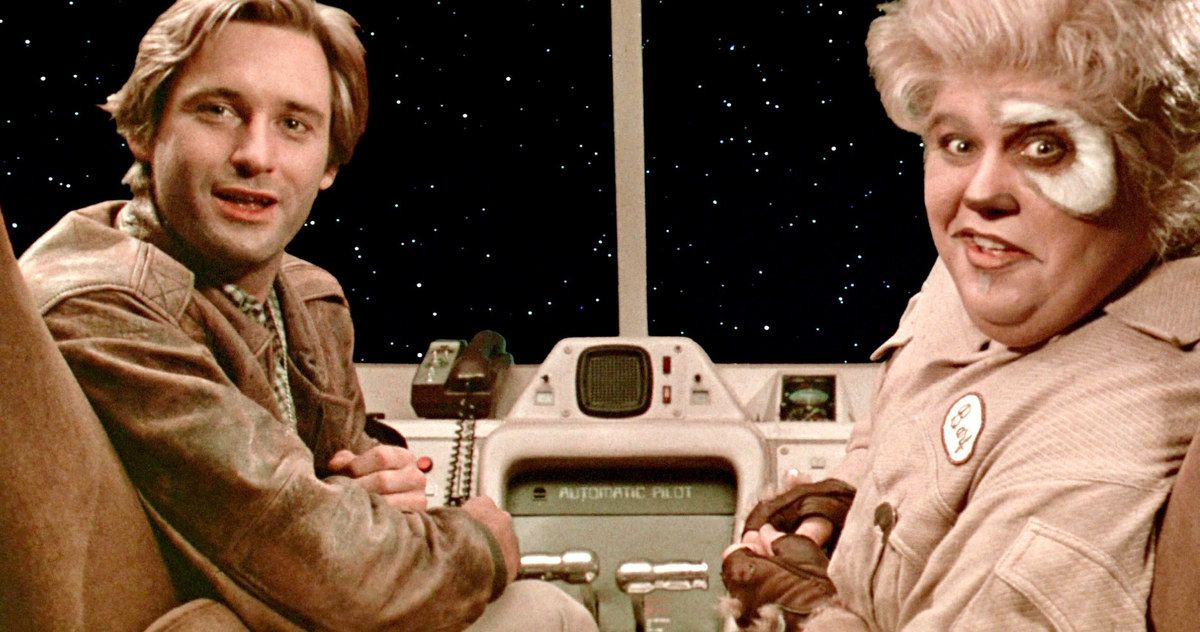
There is a timelessness to Spaceballs that cannot be overstated. Despite the fact that parody films so often age poorly due to their dependence on contemporary references, Spaceballs remains shockingly resilient – although admittedly, many of the jokes hit harder for audiences who grew up either during or shortly after the original Star Wars trilogy phenomenon. Structurally, Spaceballs is little more than an extended sketch comedy film, loosely tethered together with a story – but what a ride it is. Brooks’ playful tone, matched with a cast game for just about anything, elevates what could have been a quickly forgotten footnote into a genre classic of the 1980s.
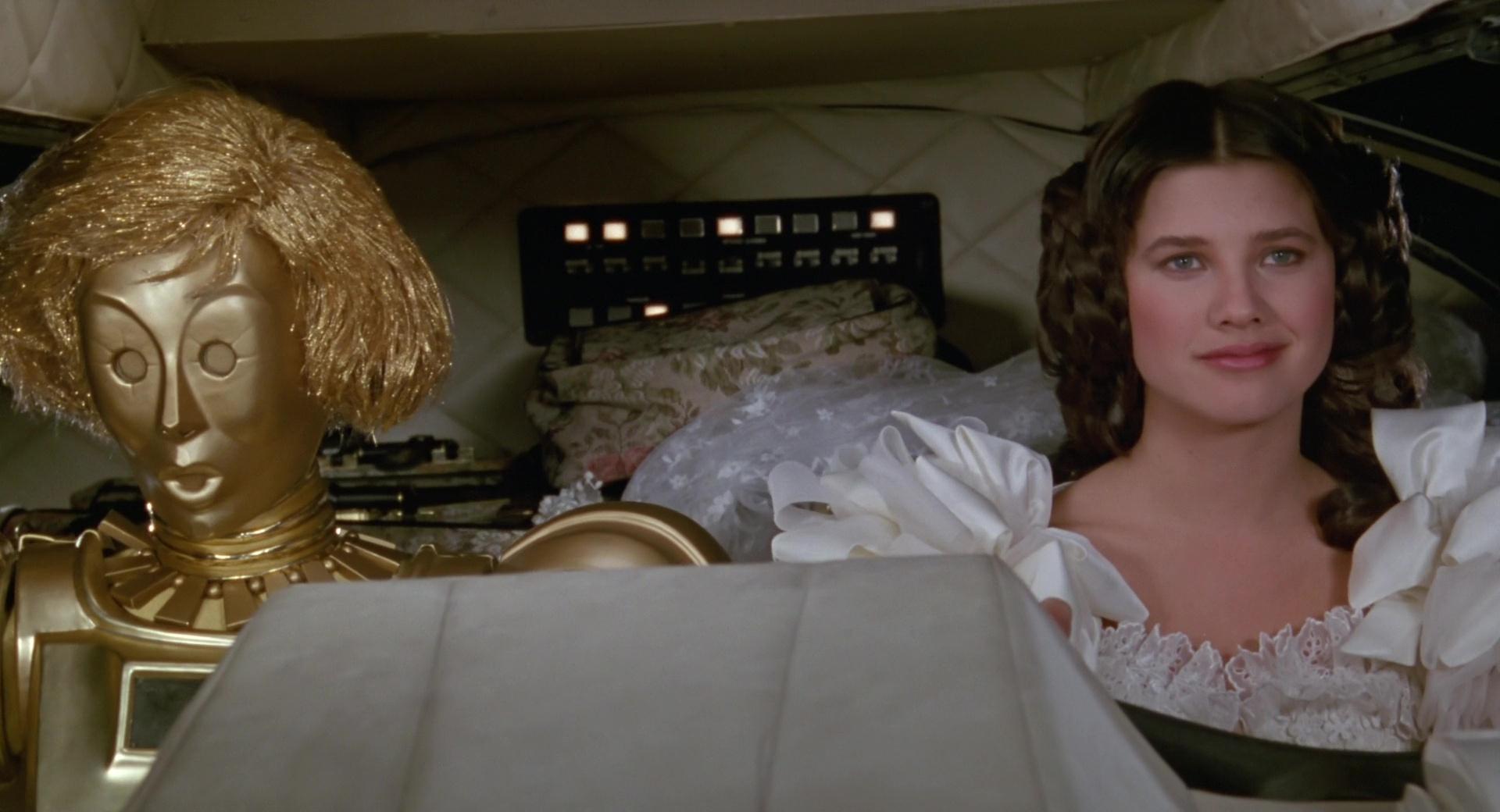
Plot synopsis courtesy of Wikipedia: the story centres on the hapless space pilot Lone Starr (Bill Pullman) and his half-man, half-dog sidekick Barf (the late, great John Candy), as they attempt to rescue Princess Vespa (Daphne Zuniga) from the evil clutches of the nefarious Dark Helmet (Rick Moranis) and the incompetent President Skroob (played with glee by Brooks himself). As Planet Spaceball faces an environmental crisis, its leaders plot to steal the fresh air of peaceful Planet Druidia, with Lone Starr and his crew caught in a madcap battle to save the galaxy. The film also features George Wyner as the sycophantic Colonel Sandurz, Dick Van Patten as the hapless King Roland, and the unmistakable voice of Joan Rivers as Dot Matrix, a neurotic robot standing in for Star Wars’ C-3PO.
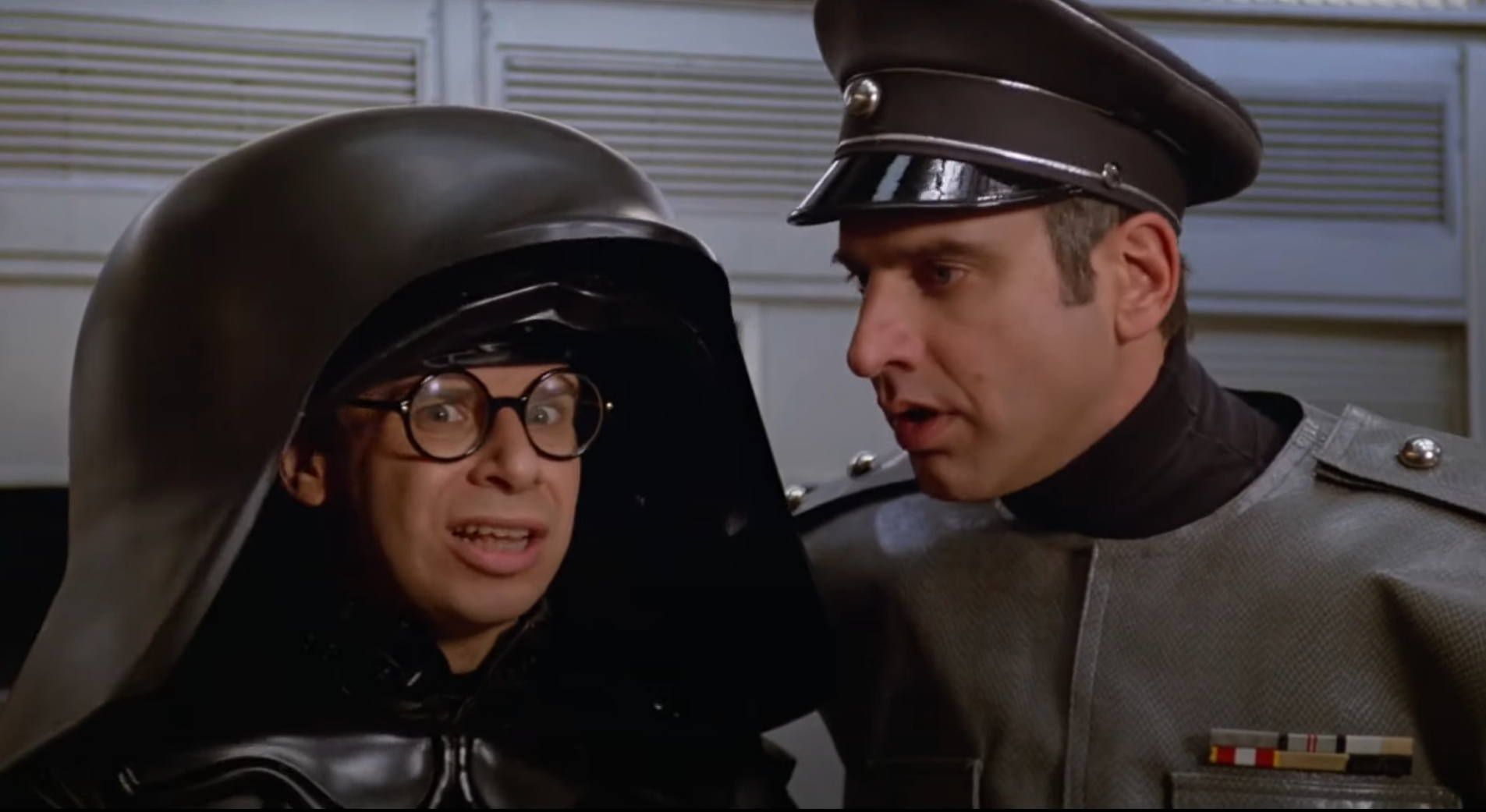
In many respects, Spaceballs does for Star Wars what Blazing Saddles did for the Western – it deconstructs and satirises the genre’s tropes, poking fun at both the mythology and the iconography so thoroughly that once you’ve seen it, it becomes almost impossible to watch the source material with the same earnestness ever again. Brooks’ scattershot approach to comedy here means that while not every joke lands, the sheer volume ensures that something is always waiting around the corner to tickle your funny bone. It’s a numbers game that pays off in spades, with the laughs far outweighing the occasional groaners.
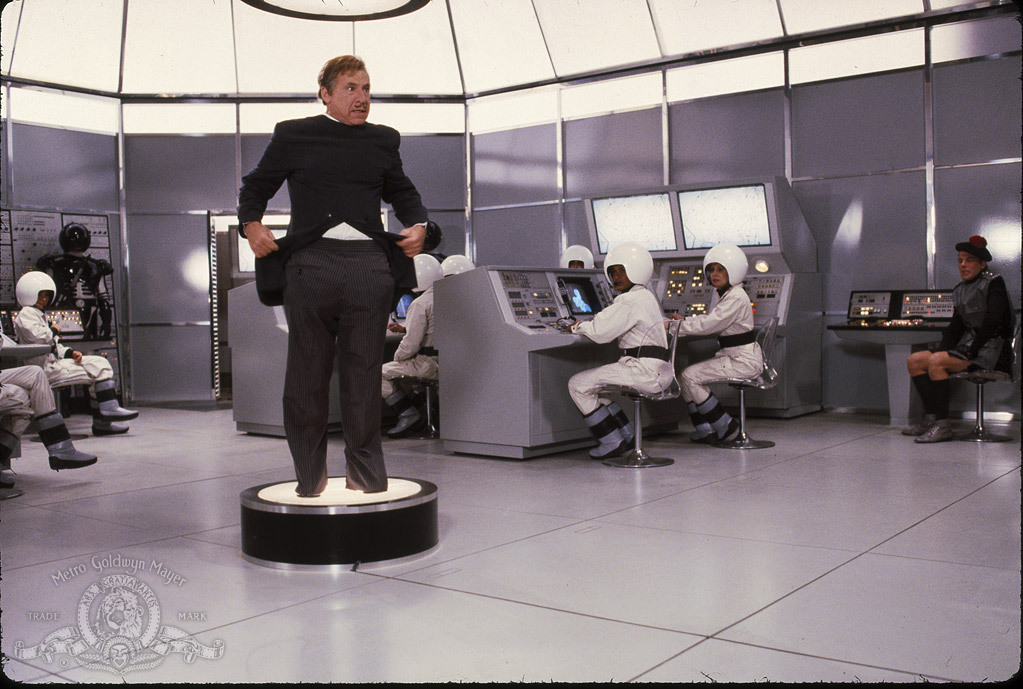
The humour here is multi-faceted: from the ludicrous (the opening sequence in which a Star Destroyer-like ship sails past the camera for what feels like an eternity) to the cleverly satirical (the merchandising scene, in which Brooks lampoons George Lucas’ obsession with spin-off products decades before Disney made it official company policy), Spaceballs consistently undercuts the seriousness of Star Wars in favour of anarchic delight. There’s the genius physical comedy of the stunt-double gag, the gloriously on-the-nose absurdity of Pizza the Hutt, and of course, Michael Winslow’s hilarious cameo, providing the sound effects for a scene with nothing but his mouth.
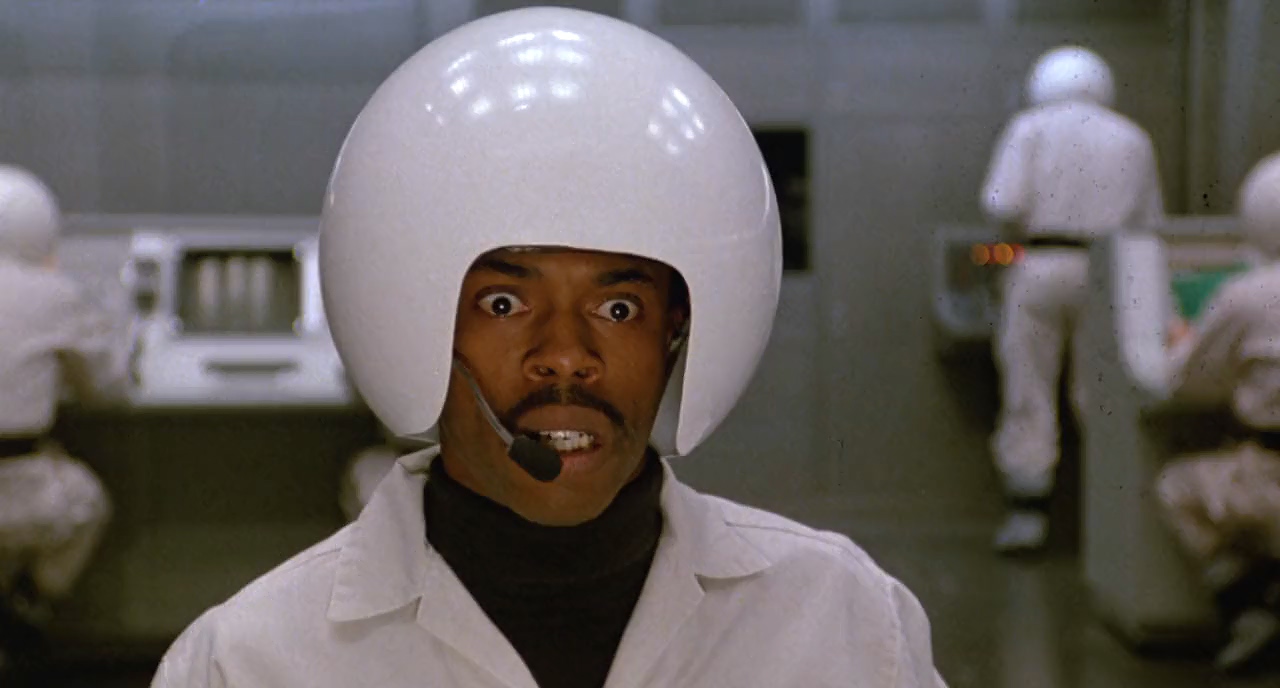
The film’s fourth-wall-breaking moments are ahead of their time, prefiguring the meta-humour that would become common in later decades. One moment in particular, where the characters literally watch a VHS copy of Spaceballs mid-movie to figure out what happens next, remains one of the cleverest comedic sequences of the entire film. It’s self-referential, winking at the audience while still being inclusive, never smug.
Bill Pullman makes for a credible Han Solo pastiche as Lone Starr, while John Candy, in one of his more restrained yet still hilarious performances, is endlessly loveable as Barf. Daphne Zuniga brings the perfect balance of haughtiness and vulnerability as Princess Vespa, parodying Carrie Fisher’s Leia without stooping to outright mockery. And Rick Moranis, in perhaps the film’s most enduring performance, is pitch-perfect as Dark Helmet: an inept villain whose childish tantrums and towering inferiority complex make him a comedy icon. Moranis commits so thoroughly to the bit that Dark Helmet has, arguably, outlasted many of his contemporaries in cultural memory.
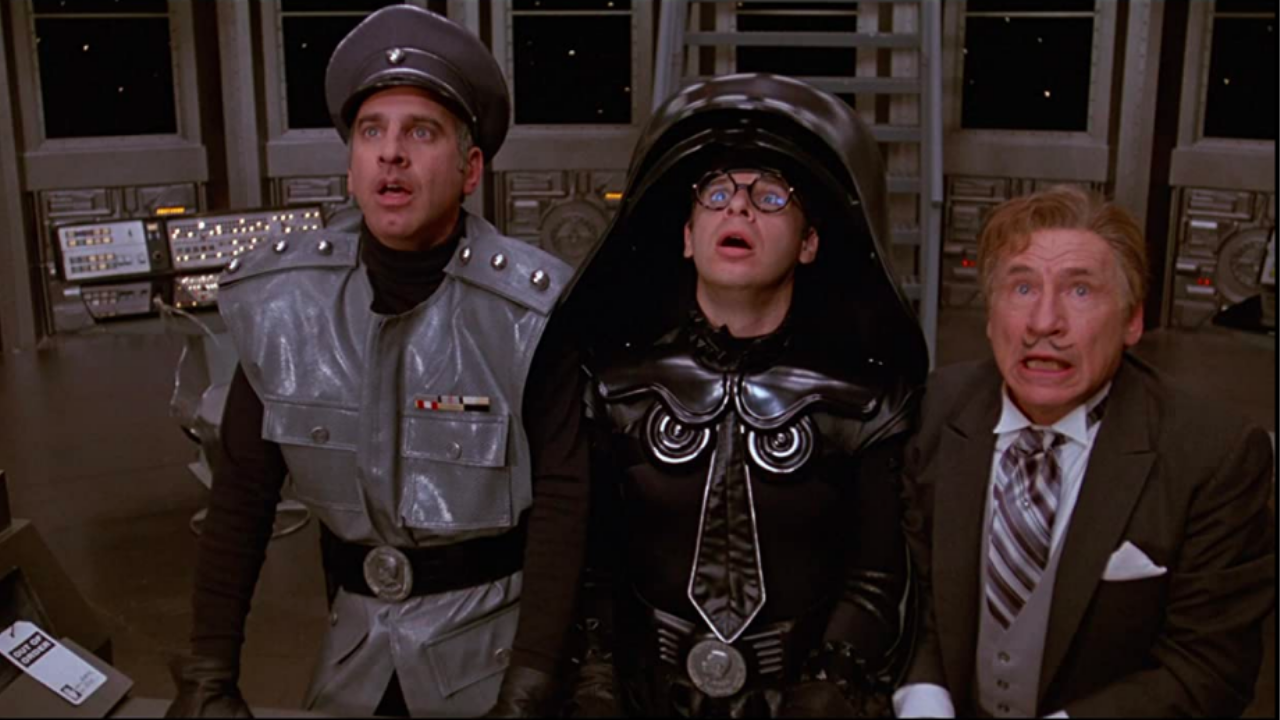
Of the supporting players, Joan Rivers’ work as Dot Matrix is solid if not spectacular – she brings a certain sardonic charm, although the role never quite capitalises on Rivers’ famously caustic wit. Dick Van Patten hams it up agreeably, and George Wyner’s Colonel Sandurz is a marvellous toady, playing straight man to Moranis’ lunacy with aplomb. Even small roles – like that of Tim Russ, delivering the immortal “we ain’t found shit!” line during the desert combing sequence – offer moments of genuine mirth.
Visually, Spaceballs impresses far more than it has any right to. The practical effects, miniatures and set designs are all surprisingly competent, no doubt a nod to Brooks’ respect for the genre he’s lampooning. The effects never feel cheap or half-hearted, which gives the film an unexpected polish; you get the sense that, despite the jokes, there was genuine love for science fiction at the heart of the production. This polish extends to John Morris’ musical score, which channels the grandiosity of John Williams’ iconic Star Wars themes without ever sliding into direct parody, and rather serves the comedic tone deftly.
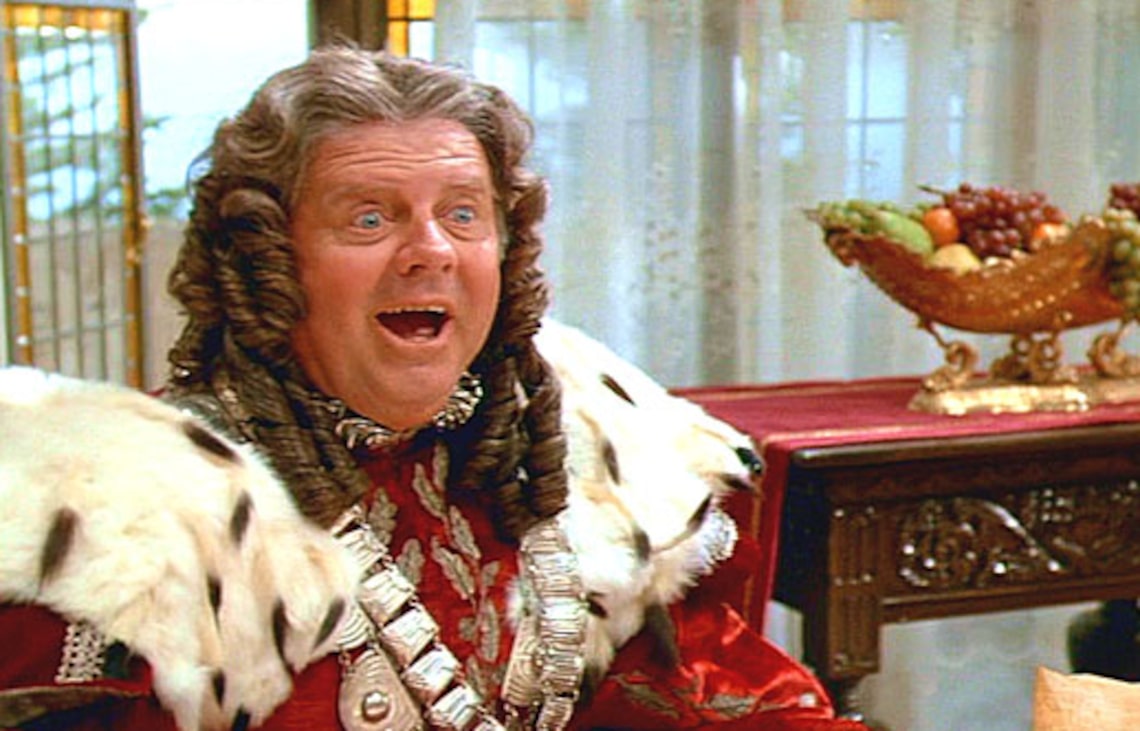
If there’s a weak link, it’s Mel Brooks himself. Playing both President Skroob and Yogurt – the Yoda analogue – Brooks seems more invested in the former role, leaning heavily into the kind of manic physical comedy that made him famous. His portrayal of Yogurt, by contrast, feels a little more cynical and slightly less charming than intended, and the film slows noticeably during Yogurt’s scenes. Thankfully, the energy is quickly restored once the narrative shifts back to the main conflict between Lone Starr and Dark Helmet.
Brooks’ script, co-written with Ronny Graham and Thomas Meehan, walks a tightrope between affectionate homage and irreverent takedown, succeeding largely because it never loses sight of the fact that it’s all in good fun. Spaceballs doesn’t hate its source material; it loves it enough to poke fun, to point out the absurdities and exaggerate them for laughs. That affectionate ribbing is perhaps the film’s greatest strength and why it continues to resonate even today.
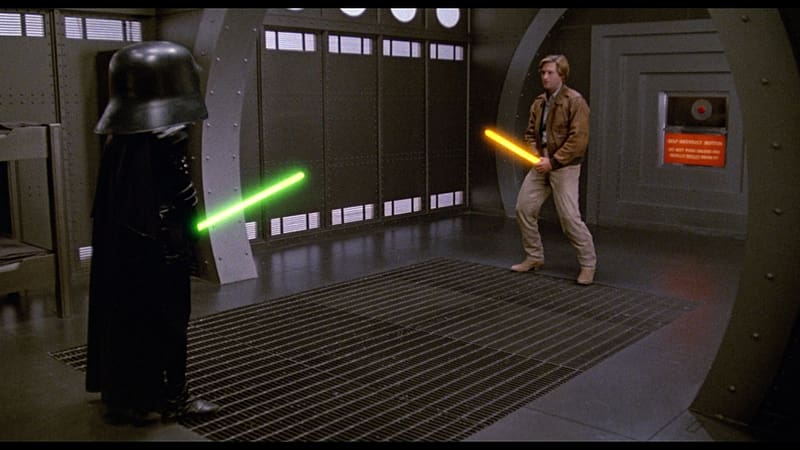
Unlike many of the endless aged-like-milk parody films that clogged up cinemas in the decades since – looking at you, Epic Movie – Spaceballs endures because it was made with genuine craft and heart. It never feels lazy or mean-spirited. Even the bawdiest jokes, the most eye-rolling puns, are delivered with a twinkle in the eye and a wink to the audience. In an era increasingly hostile to comedy that punches in any direction, Spaceballs remains a refreshingly unpretentious relic of a time when laughter could still be a little bit dangerous – and a lot of fun.
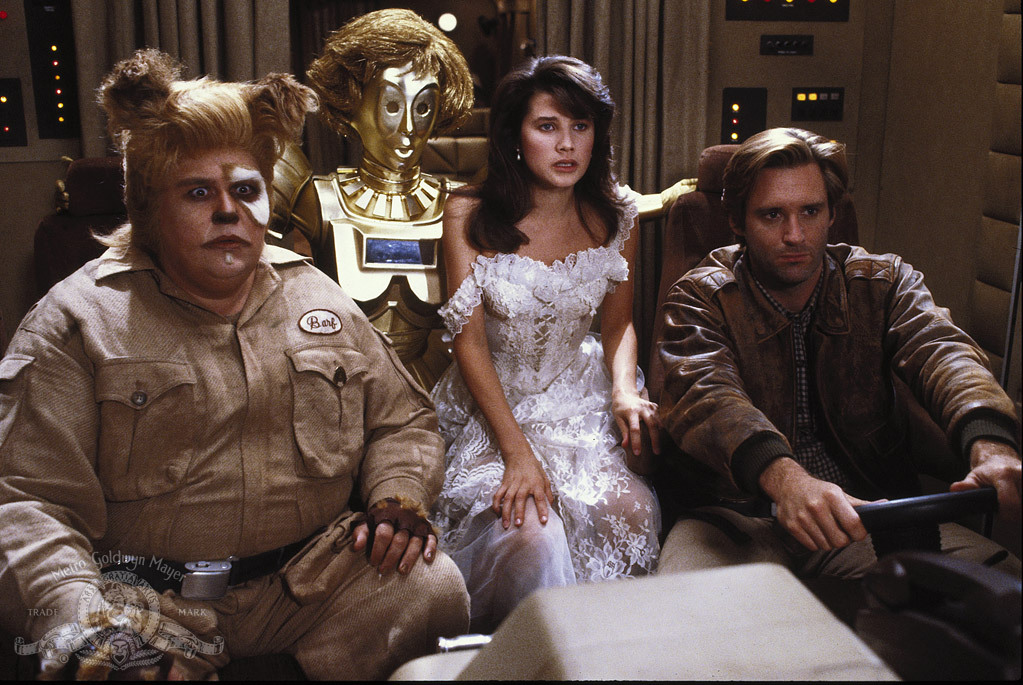
In revisiting Spaceballs, I found it to be every bit as enjoyable as I remembered. My kids, who aren’t anywhere near as well-versed in Star Wars lore as I am, still found plenty to laugh at, a testament to Brooks’ ability to craft universal humour that transcends time and generational divides. It is, quite simply, one of the best parodies ever made, and stands shoulder to shoulder with Blazing Saddles as one of Brooks’ crowning achievements.

